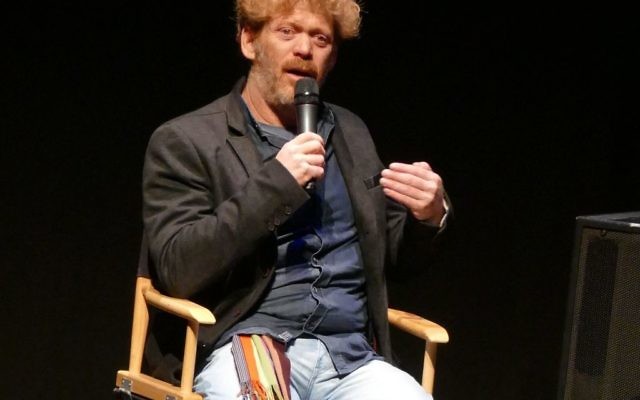‘Last Suit’ First Choice of AJFF Audience
AJFF closing-night film “The Last Suit,” won the 2018 Audience Award for best narrative.

The Atlanta Jewish Film Festival saved the best for last, at least according to the more than 36,000 audience members over the 23 days of the 18th annual festival.
Closing-night film “The Last Suit,” seen by more than 1,600 people at the Cobb Energy Performing Arts Centre on Thursday, Feb. 15, won the AJFF Audience Award for best narrative, the festival announced.
The film tells the story of an aging Holocaust survivor who leaves his family in Argentina to return to his native Lodz, Poland, for the first time in 70 years to find the friend he left behind.
Answering questions after the screening, Argentinian writer-director Pablo Solarz said he wrote the first draft of the script in 2004 after overhearing two men in a restaurant talking about a survivor making just such a journey. He also incorporated elements of the story of his own grandfather, a Holocaust survivor who wouldn’t say “Poland” because he considered it a dirty word and tried to avoid setting foot in Germany during a visit to Europe.
The other Audience Award winners are “Itzhak” for best documentary and “The Number on Great-Grandpa’s Arm” for best short. “Itzhak” follows Israeli violinist Itzhak Perlman at home and on tour. “Number,” a documentary that was part of the third shorts program, looks at a boy’s questions about the Holocaust tattoo of his great-grandfather.
For the second year, the festival also awarded jury prizes, announced during closing night by the jury chair, Arik Sokol.
The Narrative Jury Prize went to “The Testament,” which shows an Austrian Holocaust historian pursuing the truth about a massacre regardless of the cost to himself or his family. The jury called it “a powerful cinematic exploration of how one defines and maintains Jewish family and identity.”
The other seven nominees for the narrative prize included “The Last Suit.”
“Death in the Terminal,” a documentary about a terrorist attack on a bus terminal in Be’er Sheva in 2015, won two prizes: the Documentary Jury Prize and the Human Rights Jury Prize. The seven other documentary nominees included audience favorite “Itzhak” and the festival’s only feature-length world premiere, “Heading Home: The Tale of Team Israel.”
The documentary jury called “Death in the Terminal” a Hitchcock-like thriller that delves into questions of what it means to live in a world packed with security cameras.
“The filmmaker has created a work that is both original in its conception and devastating in its impact. Brilliant!” the jury said.
The other jury winners:
- Emerging Filmmaker Jury Prize — Astrid Schult, director of “Winter Hunt,” which puts four characters in one location as a young German woman tries to force a confession from a Nazi war criminal. Schult created “a compelling thriller that felt much larger than the individual parts,” the jury said.
- Building Bridges Jury Prize — “Good Thoughts, Good Words, Good Deeds: The Conductor Zubin Mehta.” “This film demonstrates how music can be an olive branch, a tool of diplomacy and a universal language that transcends cultural boundaries,” the jury said.
- Shorts Jury Prize — “On My Way Out: The Secret Life of Nani and Papi,” in which the filmmakers’ family deals with the revelation that a married 95-year-old grandfather and Holocaust survivor is gay. “The viewer shares an almost painfully intimate experience,” the jury said, calling the film “genuinely wrenching with moments of levity.”



comments